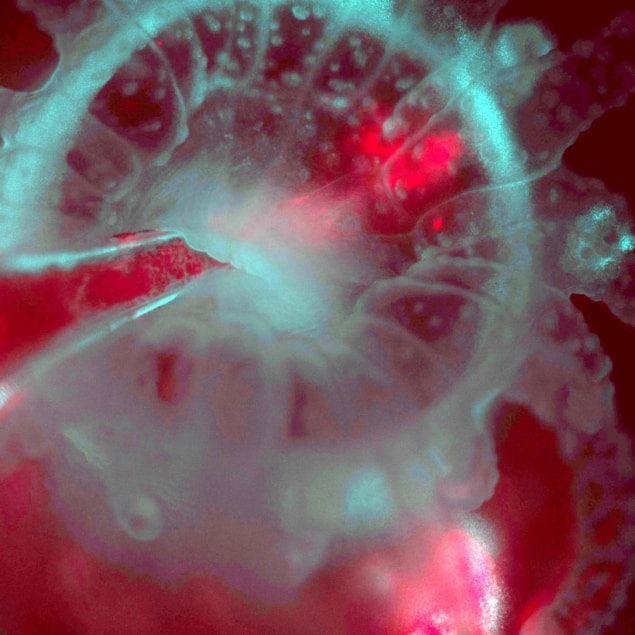N95 masks are much more than a simple screen filter and use lots of interesting physics – including van der Waals forces – to stop you from breathing in nasty virus particles. The above video does a superb job of explaining how the masks work and also touches on efforts to make them reusable.
Some corals are very sensitive to light, which makes it tricky to obtain high quality images of the organisms. Now, Philippe Laissue at the UK’s University of Essex and the Marine Biological Laboratory (MBL) in Woods Hole Massachusetts and colleagues have created a custom light-sheet microscope that allows the gentle and non-invasive observation of corals and their polyps over eight hours and at high resolution.

They used their microscope to obtain this stunning image (left), which shows the re-infection of an Astrangia coral polyp (in cyan from reflected light) with algae (red from chlorophyll fluorescence).
The researchers, including MBL’s Loretta Roberson, describe the technique in Scientific Reports.
PIP-II at Fermilab will be the first accelerator built in the US with significant contributions from other countries — with India, Italy, UK, France and Poland building major components.
Described as the new heart of Fermilab, PIP-II will be an 800 MeV superconducting linear accelerator that delivers a high-intensity proton beam. It can operate in both steady-state and pulsed mode and some of its protons will be used to create an intense beam of neutrinos that will travel 1300 km underground to a detector in South Dakota. The video below describes how PIP-II will accelerate protons.
